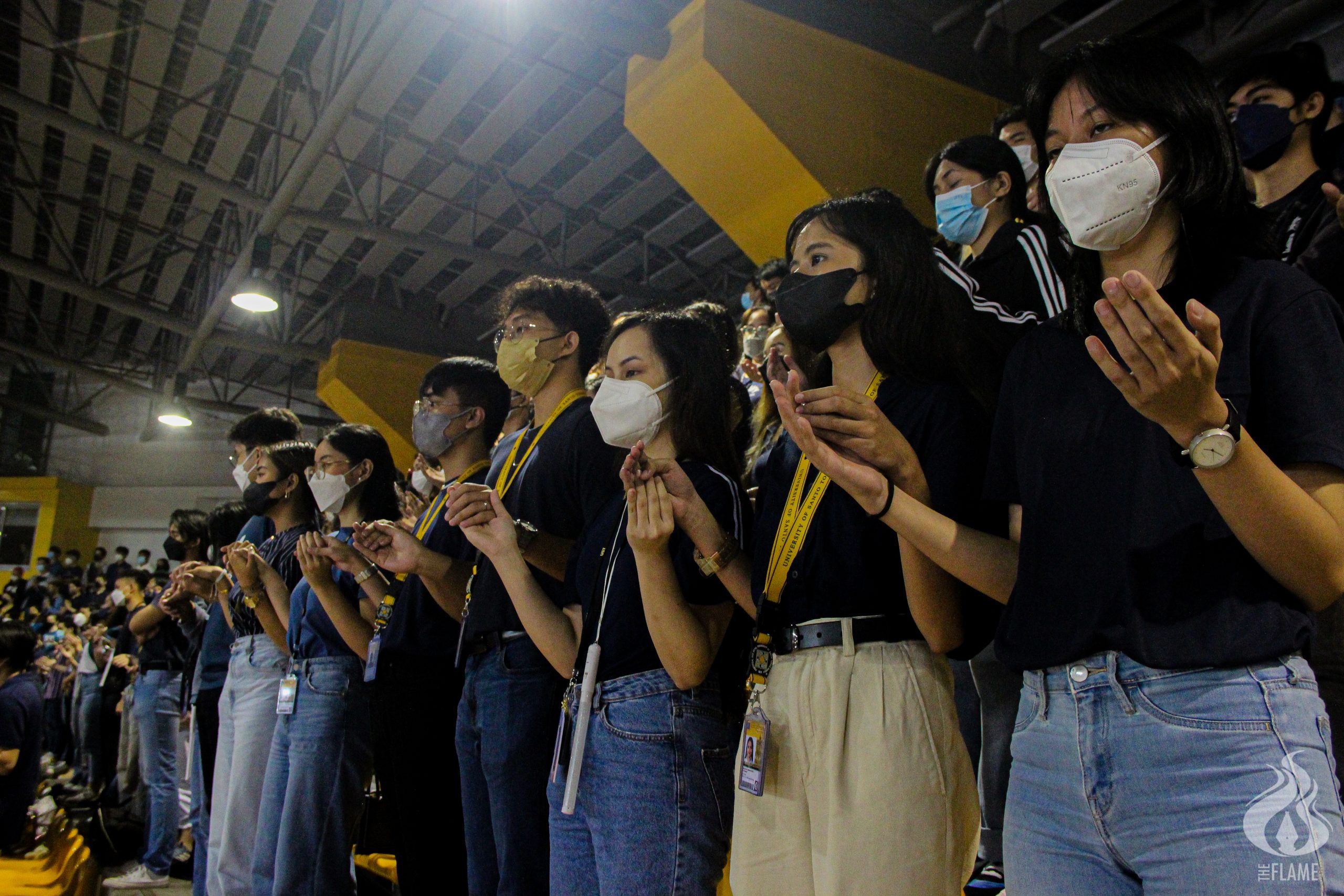
THE FACULTY of Arts and Letters (AB) is embarking on a new chapter this term with the assumption of a new administration led by Dean Jacqueline Lopez-Kaw.
In a recent interview with The Flame, Kaw, a former director of the UST Human Resource Department, vowed to uphold the legacy and to sustain the programs of previous AB administrators.
We asked members of the Artlet community what they thought should be accomplished under her leadership and what measures should be done to achieve a more conducive learning environment.
Enhanced grievance system
Students expressed hope that the AB’s information dissemination system would improve as it transitions to onsite classes.
AB Student Council (ABSC) chief of staff and journalism senior Irish Perez said inclusive and centralized guidelines on the mode of instruction should be released soon.
“[In this way], Artlets would also have ample time to prepare and adjust, especially for those who are residing in the provinces,” she said.
Communication senior Jerome Poblete shared this sentiment, saying administrators should consider “rational leniency” while Artlets adjust to the shift.
“My sentiments go to the students who are forced to take dormitories near UST since the class settings have been recently announced. Students were already clamoring last semester to announce this as early as possible, but unfortunately things have changed,” he said.
Poblete believes an enhanced grievance system would be helpful in address issues within the Artlet community.
Students also raised concerns about some professors who do not give enough feedback due to the limitations of online classes in the last two years.
A journalism senior, who requested anonymity, called on Kaw to undertake “appropriate interventions” to address the matter.
“I hope that [Kaw] would be attentive and would have a more listening ear to the queries and concerns of the Artlet community,” the student added.
Under the policies, procedures, and standards (PPS) of the UST student handbook, students may opt to direct their grievances and concerns to the faculty dean via a written complaint or schedule an appointment with the department chair.
“[A]ll students have the right to lodge a complaint or grievance against any faculty member of the University without fear of retaliation of any sort,” PPS No. 1029b reads.
Regular assessment of Artlets’ well-being
As Thomasians still grapple with the challenges brought about by the pandemic, some students are appealing to Kaw to adopt policies that would look after their well-being.
Political science freshman Nhicole Ramirez believes this can be achieved through “student-centric policies” aimed at promoting a “healthier learning environment” and the growth of the faculty.
She said the administration should ease workloads when necessary and conduct monthly assessments on the overall well-being of Artlets.
“Although my mental health is my utmost priority, I still think I struggle vastly with how I handle it, especially in highly stressful environments,” Ramirez said.
Communication freshman Caine Olo hopes Kaw’s administration will introduce policies that will ensure that students are not flooded with excessive requirements.
“I think a useful policy in helping students not have to always stay up late doing their work is to put a limit on how much active tasks should be delegated so the students do not get overwhelmed with numerous new projects every week,” he said.
Under the UST handbook, students are required to meet the program’s academic load unless the student has academic deficiencies or is graduating in their current term.
“In no instance should a student be allowed to carry less than one half of the regular load unless he/she has incurred academic deficiencies or is graduating during the term,” PPS No. 1012 reads.
More leeway for self-expression
There are also calls for the new administration to give students some leeway to express their identity.
Political science sophomore Jose Maria Balbaboco is hoping that Kaw will uphold “equality,” saying he is struggling to authentically represent himself during onsite classes due to fears of gender discrimination and bullying. He suggested integrating the Safe Spaces Act into the University’s future policies.
The Safe Spaces Act, or Republic Act No. 11313, provides protective measures for all forms of gender-based sexual harassment committed in public spaces, educational or training institutions, workplaces, and online spaces.
Creative Writing freshman Lorenzo De Castro said an “inclusive community” must be promoted as students should feel accepted and “not forgotten”
“The pandemic has caused the youth to be more distant to each other…[increasing] the risk of not being able to express themselves to other people personally,” he said.
“As Artlets, we are being prepared for the real world or in the professional world wherein self-expression especially for the arts, media, and communication industry is very much needed.”
A separate institute for media studies programs
Journalism program coordinator Felipe Salvosa II hopes to gain the new administration’s support in creating a separate institute for the University’s journalism and communication programs.
“We have to acknowledge the fact that Arts and Letters is a bigger organization with 13 programs, and managing Arts and Letters is a gargantuan task,” Salvosa said.
“Organizationally, it would be more efficient and it would also help ameliorate the two top programs if they have their own institute,” he added.
Salvosa also cited the previous administration’s accomplishments, including its satisfaction of the requirements set by the Philippine Association of Colleges and Universities Commission on Accreditation and the ASEAN University Network – Quality Assurance.
“So, that means she’s (former AB dean Prof. Marilu Madrunio) turning Arts and Letters to the new dean in very good shape,” he told The Flame.
Kaw was appointed as AB dean last December, succeeding Madrunio, who led the faculty for three years. The new Artlet dean finished her bachelor’s degree in legal management magna cum laude in 2002 and completed her law degree in 2006, both at the University. She completed her civil law master’s and doctorate degrees in 2016 and 2019, respectively. F



